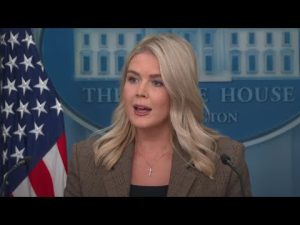In a poignant display of grace and compassion, Erica, whose husband Charlie was tragically murdered, took to the stage in front of an audience of over a hundred million people to extend forgiveness to his assassin. This emotional moment not only highlighted the profound strength of forgiveness but also sparked a deeper conversation about the implications of such an act in a society that often seems consumed by anger and division.
Forgiveness is not merely a personal journey; it is a choice that can influence a larger narrative. Erica’s powerful message juxtaposed against the backdrop of rising crime, particularly in urban areas, serves as a stark reminder that there are still individuals striving for hope and healing in a deeply fractured world. By forgiving her husband’s killer, Erica exemplifies a critical conservative tenet: that individuals can rise above the chaos of their circumstances and choose a path that prioritizes understanding over hatred.
In a time when victimhood often takes center stage, Erica instead chose to position herself as an agent of change. Rather than succumbing to the understandable urge for revenge or resentment, she sought to highlight her husband Charlie’s wish to help young men like his killer. This perspective aligns with a constructive approach to crime; instead of punishing actions alone, society should also address the underlying issues that lead to such behavior. Educating and empowering youth may very well be a more effective way to create long-lasting change than simply calling for tougher sentencing and penalties.
Erica’s stance draws upon the wisdom embedded in many philosophical and religious frameworks: forgiveness is not for the offender but for the one who has been wronged. It is an act of self-liberation. This could serve as an opportunity for conservatives to advocate for programs that emphasize forgiveness and reconciliation as means to address crime and societal discord—perhaps even nurturing new policies that focus on rehabilitation rather than solely punishment. After all, who better to lead the charge for forgiveness and healing than those deeply affected by violence?
While it is essential to acknowledge the emotional journey Erica has embarked on, society must also consider the responsibility that comes with such a magnanimous act. Can her forgiveness foster a broader acceptance within the community? Will it inspire a collective willingness to also forgive those who have wronged us, allowing for a cycle of understanding rather than vengeance? If every person could channel even a fraction of Erica’s compassion, we could envision a more united front against divisive hatred.
In conclusion, Erica’s moment of forgiveness stands as a beacon of hope in these turbulent times. Her actions challenge us to reconsider how we approach tragedy and violence in our own communities. While vengeance may feel like a natural response, her example highlights the power of lifting others through forgiveness. If society wants to encourage healing rather than exacerbating rifts, encouraging forgiveness could very well be the path forward. After all, if a woman can find it in her heart to forgive her husband’s killer, perhaps we can all find a little grace in our daily lives.







